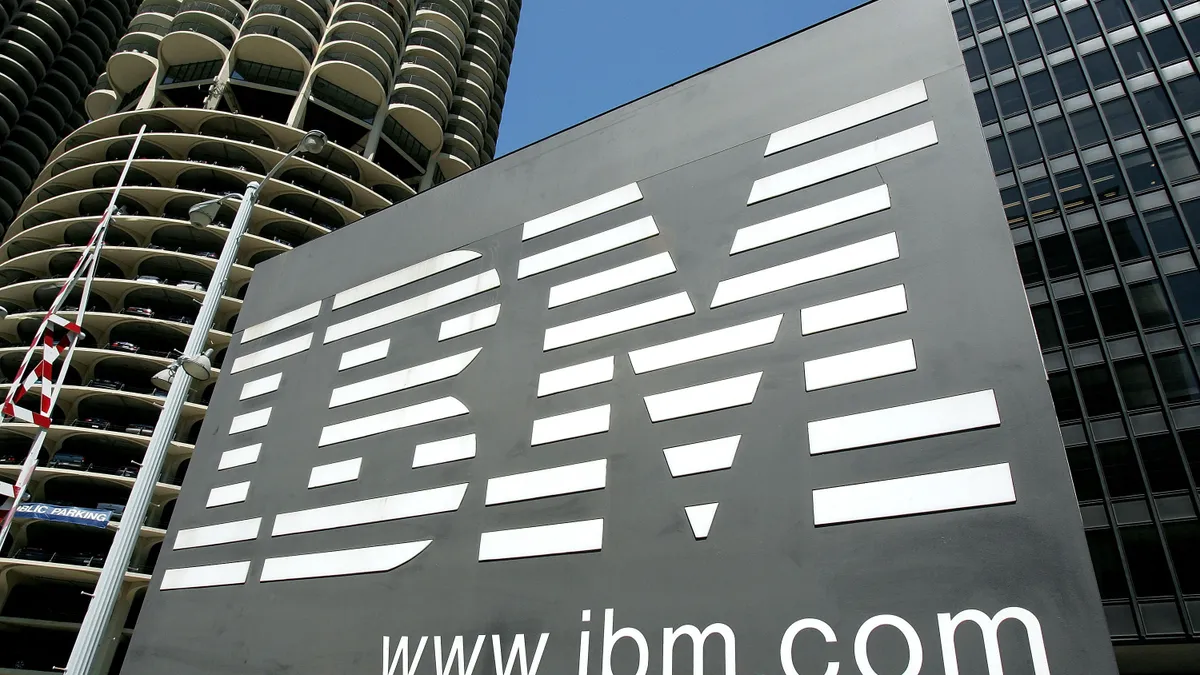Dive Brief:
-
IBM reported revenue of $18.7 billion during the second quarter of 2021, rising 3% year over year, the company announced Monday. Analysts had expected the tech vendor to bring in $18.3 billion in revenue during the quarter.
-
Total cloud revenue for IBM reached $7 billion during the second quarter, up 13% year over year. In the last 12 months, IBM reported $27 billion in total cloud revenue, a 15% increase.
-
Adoption of IBM's hybrid cloud platform led to a "strong performance" from the company's consulting unit, Global Business Services, and drove higher revenue overall, according to Arvind Krishna, IBM chairman and chief executive officer, in a statement.
Dive Insight:
The redefinition of IBM in the era of hyperscalers is underway, and hybrid cloud is part of its fundamental messaging to the enterprise sector.
For IBM, hitting a second consecutive growth quarter is a welcome event, following a long streak of quarterly contraction in overall revenue. Its hybrid cloud business has continued to expand, in part due to the firm's 2018 move to acquire hybrid cloud provider Red Hat for $34 billion.
"We now have over 3,200 clients using our hybrid cloud platform, that's almost four times the number of clients just prior to our announcement of the Red Hat acquisition," said Krishna during the earnings call.
Under Krishna's cloud expertise, IBM has doubled down on hybrid cloud messaging at a time when most enterprise customers pick hybrid cloud as their ideal environment.
IBM is focusing on telling a hybrid cloud and AI story, according to Bola Rotibi, research director, software development CCS Insight. Thus far, strong growth in those spaces suggests the company is meeting market expectations.
Amid the crowded field of vendors, IBM's betting on its ability to provide enterprise customers a consistent hybrid cloud experience, Rotibi said. "It doesn't matter what the actual end destination is, what they're offering organizations is the same look and feel to [Red Hat] OpenShift."
IBM's return to revenue growth comes after an era of reshaping. The company kicked off 2020 with a management change, as former CEO Ginni Rometty announced in January she'd be stepping down. By April, Krishna — formerly IBM's senior vice president for cloud and cognitive software — took the CEO seat. In October, the firm spun out its managed infrastructure services from the technology services unit, and into a new independent company it later named Kyndryl.













